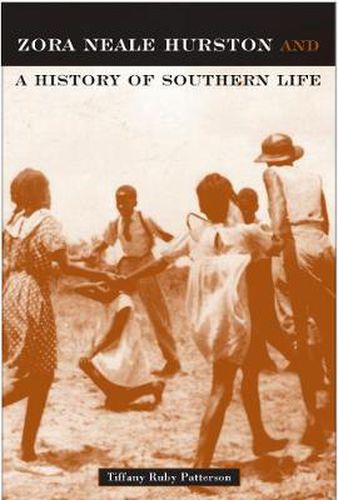Readings Newsletter
Become a Readings Member to make your shopping experience even easier.
Sign in or sign up for free!
You’re not far away from qualifying for FREE standard shipping within Australia
You’ve qualified for FREE standard shipping within Australia
The cart is loading…






A historian hoping to reconstruct the social world of all-black towns or the segregated black sections of other towns in the South finds only scant traces of their existence. In [title] Tiffany Ruby Patterson uses the ethnographic and literary work of Zora Neale Hurston to augment the few official documents, newspaper accounts, and family records that pertain to these places hidden from history. Hurston’s ethnographies, plays, and fiction focused on the day-to-day life in all-black social spaces as well as the Negro farthest down in labor camps. Patterson shows how Hurston’s work coincides with the fragmented historical record to demonstrate the extent to which the folklore and stories provide a plausible account of these Black folk as active human subjects, shaped by history and shaping their private world. Beyond the view and domination of whites in these spaces, they created their own codes of social behavior, honor, and justice. In Patterson’s view Hurston did not demean her subjects or caricature them; she rendered them faithfully and with respect for their individuality and endurance. In so doing, she enabled us to envision a world that otherwise would have been inaccessible.
$9.00 standard shipping within Australia
FREE standard shipping within Australia for orders over $100.00
Express & International shipping calculated at checkout
A historian hoping to reconstruct the social world of all-black towns or the segregated black sections of other towns in the South finds only scant traces of their existence. In [title] Tiffany Ruby Patterson uses the ethnographic and literary work of Zora Neale Hurston to augment the few official documents, newspaper accounts, and family records that pertain to these places hidden from history. Hurston’s ethnographies, plays, and fiction focused on the day-to-day life in all-black social spaces as well as the Negro farthest down in labor camps. Patterson shows how Hurston’s work coincides with the fragmented historical record to demonstrate the extent to which the folklore and stories provide a plausible account of these Black folk as active human subjects, shaped by history and shaping their private world. Beyond the view and domination of whites in these spaces, they created their own codes of social behavior, honor, and justice. In Patterson’s view Hurston did not demean her subjects or caricature them; she rendered them faithfully and with respect for their individuality and endurance. In so doing, she enabled us to envision a world that otherwise would have been inaccessible.